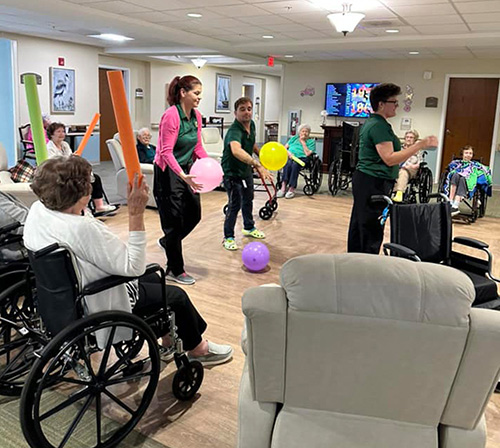
The holiday season often brings families together—sharing meals, catching up, and enjoying the warmth of each other’s presence. However, for many of us with aging parents, these visits can also shine a light on subtle shifts in their health, habits, and home environment.
If you’re visiting your parent in the Riverview, Florida area this holiday and noticing things that wasn’t there before, it may be a timely opportunity to consider a supportive transition—such as into an assisted living or memory care community like Twin Creeks.

🛑Signs It Might Be Time for More Support
Here are the key indicators that suggest your parent could benefit from the safety and community of additional care:
- Decline in Personal Hygiene: You might notice your parent isn’t keeping up with daily routines like bathing, changing clothes, or brushing their hair. These are often early signs that managing self-care is becoming too difficult.
- Medication Mis-management: Do you see pills that are missed, taken irregularly, or general confusion about dosage? These are major red flags that professional supervision is needed.
- Nutrition & Hydration Issues: During your visit, pay attention to the table. Is the meal plate less full? Are snacks left untouched? Weight loss or dehydration affects overall quality of life quickly.
- Mobility & Safety Concerns: Slower walking, evidence of recent falls, difficulty getting out of a chair, or reluctance to use the bathroom alone—these signal rising support needs




